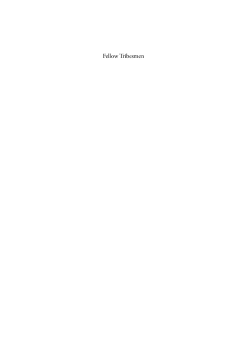
Additional Information
Book Details
Abstract
Throughout the nineteenth and twentieth centuries, Germans exhibited a widespread cultural passion for tales and representations of Native Americans. This book explores the evolution of German national identity and its relationship with the ideas and cultural practices around “Indianthusiasm.” Pervasive and adaptable, imagery of Native Americans was appropriated by Nazi propaganda and merged with exceptionalist notions of German tribalism, oxymoronically promoting the Nazis’ racial ideology. This book combines cultural and intellectual history to scrutinize the motifs of Native American imagery in German literature, media, and scholarship, and analyzes how these motifs facilitated the propaganda effort to nurture national pride, racial thought, militarism, and hatred against the Allied powers among the German populace.
“Usbeck’s deep analysis of the process [of using American Indians as inspirational examples of both annihilation and resistance] will interest many scholars of the Nazi era, of race and of Germans’ relationships with non-Europeans. The book’s introduction offers readers a primer on mining German periodicals. So detailed is Usbeck’s discussion of current resources, it is sure to interest many.” · German History
“Usbeck’s study is very impressive. He has collected a great number of facts…[and] presents a most interesting book…An extensive bibliography concludes an important work that is also attractively illustrated.” · AmerIndian Research
“This is an excellent study of how the German infatuation with North American Indians, ‘Indianthusiasm,’ was used to promote Nazi ideology during the so-called ‘Third Reich’... [The author] goes far beyond [previous studies] in the depth and acumen of his archival research and theoretical grounding... His observations help us to perceive and analyze German Nazi ideology and some of its surprising internal contradictions in a far more comprehensive and complex way than before.” · Hartmut Lutz, University of Greifswald
“[This book] is a useful analysis of how and why the images of Native Americans played a role in explaining the rise of the Nazi party to power... Usbeck’s look at the connection between the German images of Native Americans and their own largely imagined unified past should be a revelation to American readers... It is wonderfully succinct, erudite, well written, and thought provoking.” · Tom Holm, University of Arizona
Frank Usbeck is Postdoctoral Research Fellow at the Technische Universität Dresden. He earned his Ph.D. at Leipzig University, and his thesis was awarded the Rolf Kentner Dissertation Prize of the Heidelberg Center for American Studies in 2011. He co-edited the collection Participating Audiences, Imagined Public Spheres (2012) and has published a number of essays on Indian imagery in Germany and on ceremonial storytelling in American soldier weblogs. Usbeck is a member of the Dresden-Leipzig research initiative “Selbst-bewusste Erzählungen.”
